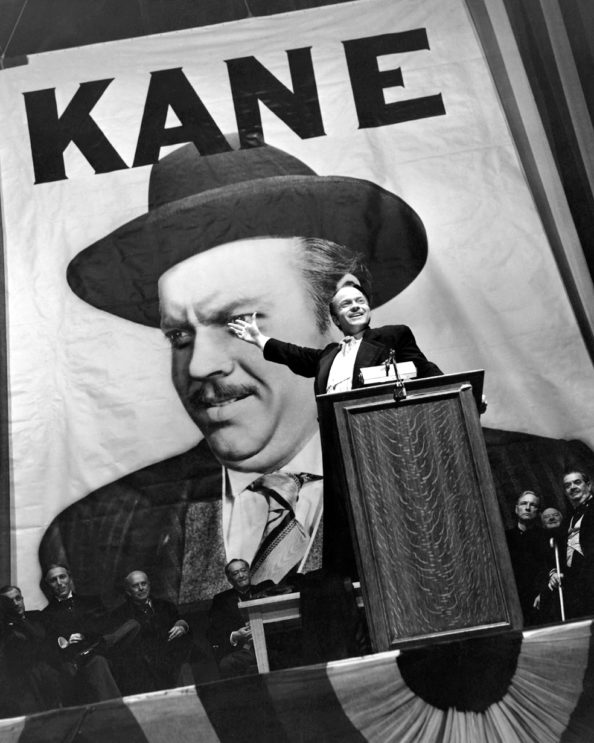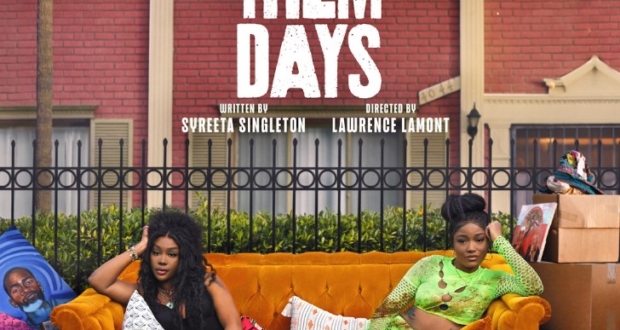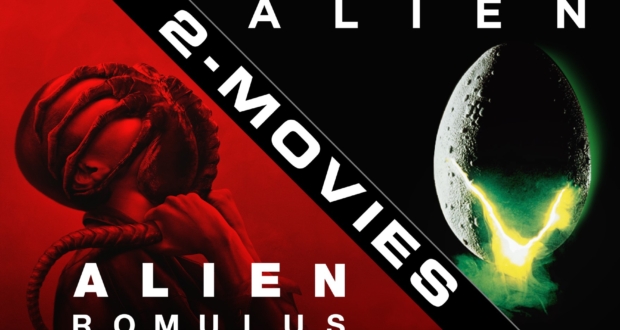Here’s something you probably won’t hear from film school professors, mainstream critics, or even most serious cinephiles: you don’t have to pretend to love all the classics. If you have a serious love of film, you should probably be able to find something to like about most of them, because they’re generally considered classics for a reason. But that doesn’t mean your list of favorite films has to include “x” number of Clark Gable projects to be taken seriously.
Keeping that in mind, it’s also probably fair to say that plenty of films that have obtained the “classic” label over time can rightly be described as overrated. That’s not to say they’re all bad. Some might be classics because of pioneering a cinematic method or storytelling trend, for instance, and might be vital to the history of film without actually being very enjoyable as movies. But still, some of them feel increasingly overrated as time passes and so many serious film types refuse to ascribe the same significance to more modern projects.
The truth is this is all subjective. Any film lover can make his or her own list of favorite movies, or factors that define a classic. But in this writer’s opinion, at least, these are five films that have become overrated by the film community at large.
“Lawrence Of Arabia” (1962)
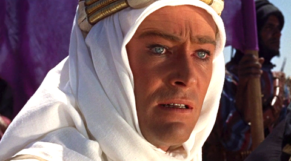 It may not be the 1940s black-and-white picture you expected to see at the beginning of this list, but it’s an overrated classic nonetheless. Depicting the story of a British Lieutenant (Peter O’Toole in his career-defining role) helping to unite Arab forces against the Turks, it’s considered by many to be a sort of foundation piece for the epic adventure genre. Left out of that consideration is the fact that it’s dreadfully boring and, arguably, offensive. 1971 Reviewae, which reviews films from an Arab perspective, cited some interesting conversations essentially about “white savior” narratives in Hollywood, and it’s hard to deny that “Lawrence Of Arabia” belongs on that list. That’s not to say those involved had any offensive intention of course, but let’s just say a more modern worldview paints the film in at least a vaguely sketchy light.
It may not be the 1940s black-and-white picture you expected to see at the beginning of this list, but it’s an overrated classic nonetheless. Depicting the story of a British Lieutenant (Peter O’Toole in his career-defining role) helping to unite Arab forces against the Turks, it’s considered by many to be a sort of foundation piece for the epic adventure genre. Left out of that consideration is the fact that it’s dreadfully boring and, arguably, offensive. 1971 Reviewae, which reviews films from an Arab perspective, cited some interesting conversations essentially about “white savior” narratives in Hollywood, and it’s hard to deny that “Lawrence Of Arabia” belongs on that list. That’s not to say those involved had any offensive intention of course, but let’s just say a more modern worldview paints the film in at least a vaguely sketchy light.
“Breakfast At Tiffany’s” (1961)
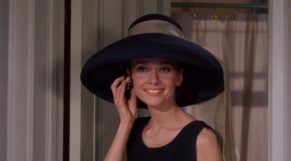 As a ho-hum love story or old school rom-com, “Breakfast At Tiffany’s” is just fine. And I’m not sure you’re human if you’re not captivated by Audrey Hepburn at the peak of her powers. But it’s a little bit of a mystery how this one came to be labeled as a classic or as one of the best films of all time. Stripped of Truman Capote’s literary voice, the script is frankly nothing special. Also, the plot, which is perhaps more unique in its time, feels like your average theater play adapted to the big screen. It’s good, but by no means a legitimate classic.
As a ho-hum love story or old school rom-com, “Breakfast At Tiffany’s” is just fine. And I’m not sure you’re human if you’re not captivated by Audrey Hepburn at the peak of her powers. But it’s a little bit of a mystery how this one came to be labeled as a classic or as one of the best films of all time. Stripped of Truman Capote’s literary voice, the script is frankly nothing special. Also, the plot, which is perhaps more unique in its time, feels like your average theater play adapted to the big screen. It’s good, but by no means a legitimate classic.
“Citizen Kane” (1941)
Maybe I just don’t get it. “Citizen Kane” is the story of a media tycoon’s troubled life and rise to power—or, in another sense, a bizarre portrait of an exceedingly wealthy fool. Interestingly enough Lottoland, which serves as an online outlet for lottery players, posted a list of the wealthiest fictional characters, as a means of feeding into the imaginations of its Powerball hopefuls—and Charles Foster Kane came in at number five. But as the list notes, he obtained the bulk of his wealth when his family mistakenly inherited a mine full of gold, and there’s just not much of a fascinating tycoon tale to be had in that kind of background. Not to mention the main reason “Citizen Kane” is considered a classic is that people seem to think it invented symbolism with the iconic “Rosebud” sled.
“Frankenstein” (1931)
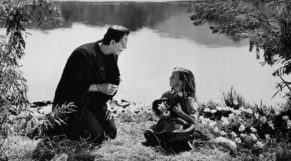 Generally, I’m prepared to accept the fact that cinematic adaptations of popular literature tend to go their own way, at least to some extent. But the fact that the 1931 Boris Karloff “Frankenstein” pretty much changed the meaning of Mary Shelley’s story for now almost a century just seems a little bit wrong. This film is considered to be iconic because of Karloff’s performance, and is widely regarded as the definitive Frankenstein movie. Yet, it twisted a gothic novel with fascinating psychological and scientific elements into a monster horror flick. It’s not a bad movie, but it’s not a stretch to say it ruined (or at least kind of bastardized) a far better book.
Generally, I’m prepared to accept the fact that cinematic adaptations of popular literature tend to go their own way, at least to some extent. But the fact that the 1931 Boris Karloff “Frankenstein” pretty much changed the meaning of Mary Shelley’s story for now almost a century just seems a little bit wrong. This film is considered to be iconic because of Karloff’s performance, and is widely regarded as the definitive Frankenstein movie. Yet, it twisted a gothic novel with fascinating psychological and scientific elements into a monster horror flick. It’s not a bad movie, but it’s not a stretch to say it ruined (or at least kind of bastardized) a far better book.
“Gone With The Wind” (1939)
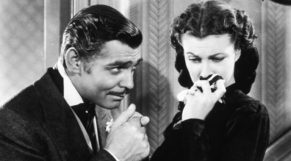 As with “Citizen Kane,” it feels like blasphemy to criticize this film. The four-hour Civil War epic is considered by most anyone taken seriously in the world of movies to be a masterpiece of cinematic storytelling. It’s also mightily dull, shockingly dismissive of African-American concerns connected to the Civil War, and driven by a nightmare of a heroine. Its social issues (it’s, um, pretty racist) also make it more outdated than most old movies, as was pointed out in amusing fashion by a list from Thought For Your Penny, which suggested alternatives for 25 overrated “classics.” The suggestion, in this case, was “Django Unchained.”
As with “Citizen Kane,” it feels like blasphemy to criticize this film. The four-hour Civil War epic is considered by most anyone taken seriously in the world of movies to be a masterpiece of cinematic storytelling. It’s also mightily dull, shockingly dismissive of African-American concerns connected to the Civil War, and driven by a nightmare of a heroine. Its social issues (it’s, um, pretty racist) also make it more outdated than most old movies, as was pointed out in amusing fashion by a list from Thought For Your Penny, which suggested alternatives for 25 overrated “classics.” The suggestion, in this case, was “Django Unchained.”
So that’s one writer’s list! Naturally every film fan can agree or disagree with the assertion that these movies are overrated, but it’s important to recognize that it’s perfectly ok to question “classic” status in general!

